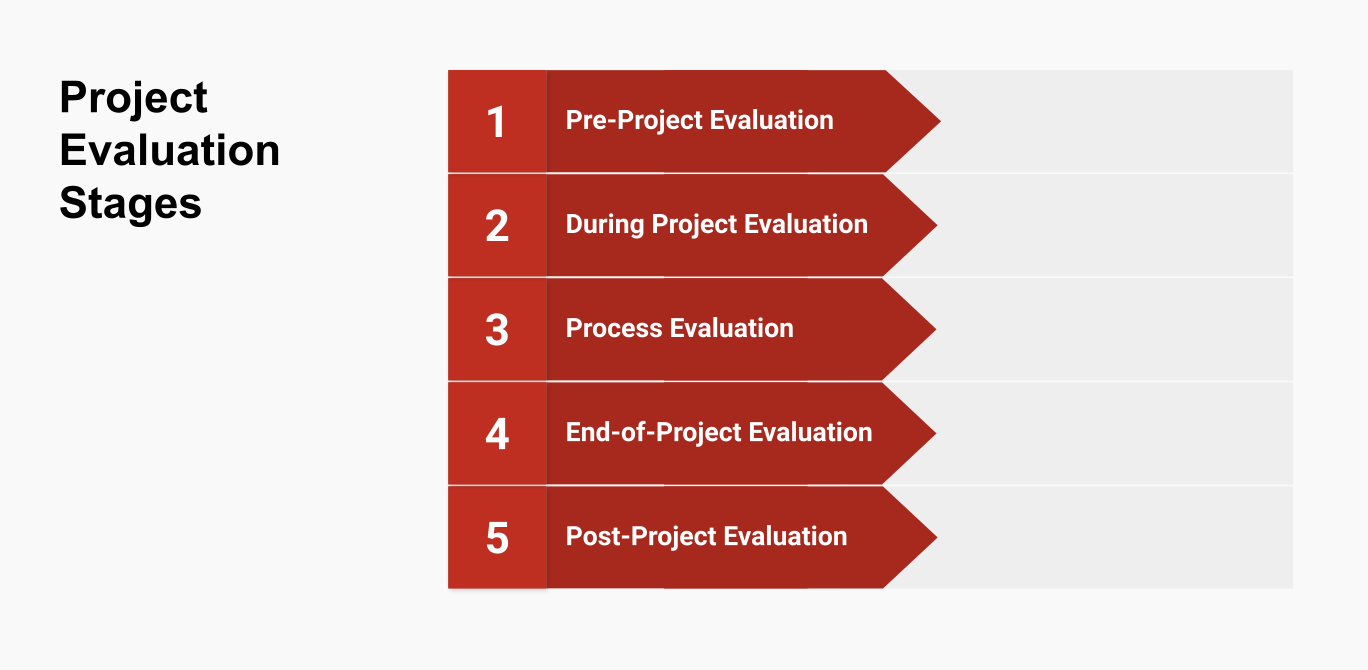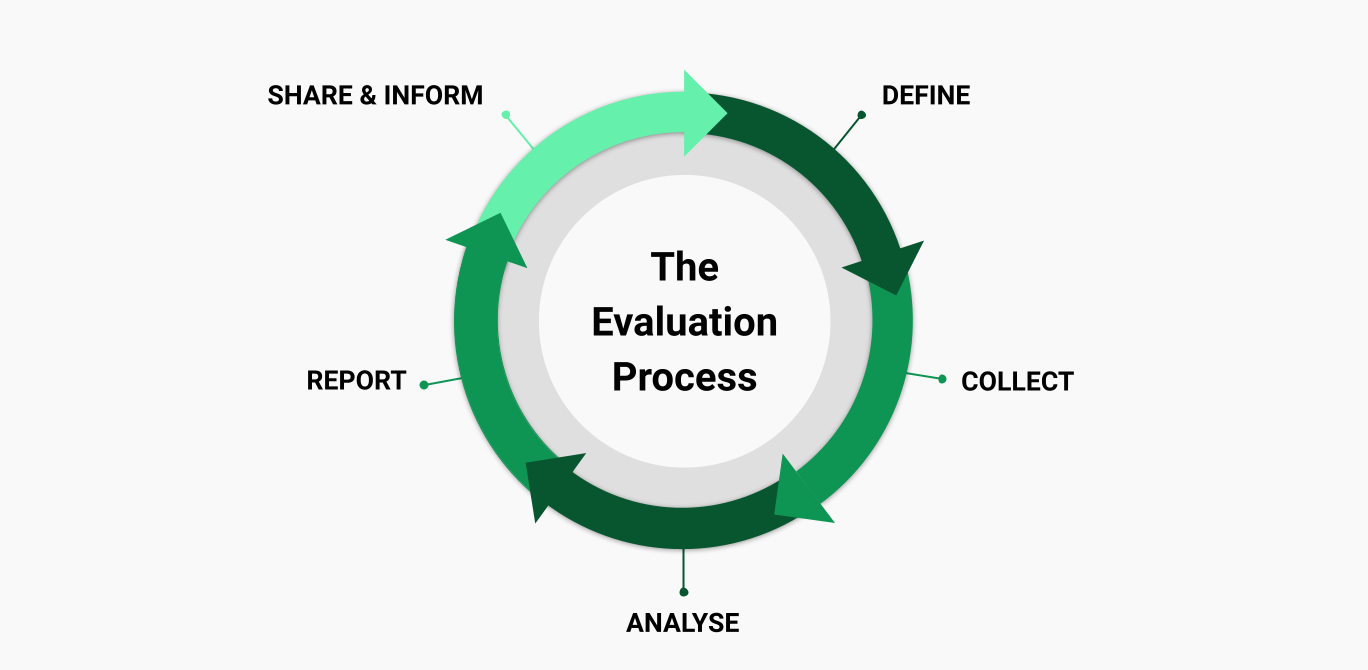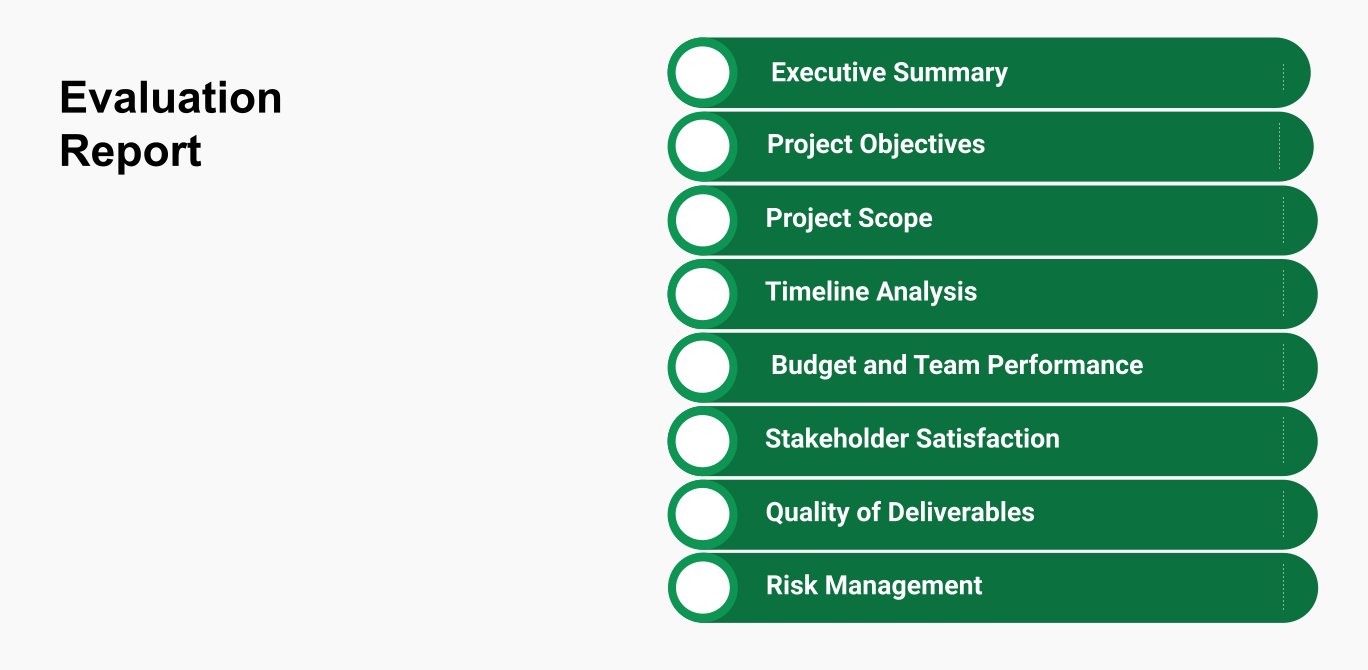Project Evaluation: Definition and Process
This article explores the various purposes and types of project evaluation, offering a comprehensive guide on how to effectively evaluate a project to maximize its success and impact.
What is Project Evaluation?
Project evaluation is a systematic process of assessing the design, implementation, and outcomes of a project. It involves collecting and analyzing information to determine the project's effectiveness, efficiency, impact, and sustainability.
What is the Purpose of Project Evaluation?
The purpose of project evaluation is to systematically assess the planning, implementation, and outcomes of a project to determine its effectiveness, efficiency, and impact. This process involves analyzing various aspects such as feasibility, progress, and sustainability to provide insights and feedback that guide decision-making, improve project management, and ensure alignment with organizational goals and stakeholder needs.
Types of Project Evaluation
Project evaluation can be conducted at different stages of a project, including before it starts (ex-ante), during its implementation (formative or process evaluation), and after its completion (ex-post or summative evaluation). Let’s see what each of these stages include:

1. Ex-Ante Evaluation (Pre-Project Evaluation)
Pre-project evaluation is conducted to assess the feasibility, relevance, and potential impact of a project before it begins. The key activities involved include:
- Needs Assessment: Determine the needs and problems the project aims to address.
- Feasibility Study: Evaluate the technical, financial, and operational feasibility of the project.
- Risk Analysis: Identify potential risks and develop strategies to mitigate them.
- Stakeholder Analysis: Identify and understand the interests and influence of stakeholders.
This evaluation informs decision-making on whether to proceed with the project, aids in designing a more effective and efficient project plan, and ensures alignment with organizational goals and stakeholder needs.
2. Formative Evaluation (During-Project Evaluation)
During-project evaluation provides ongoing feedback and insights to improve project implementation and outcomes. Key activities include:
- Monitoring Progress: Regularly track and assess the progress of project activities.
- Identifying Issues: Detect any issues or challenges early on and address them promptly.
- Adjusting Strategies: Make necessary adjustments to project strategies and activities based on feedback.
This type of evaluation enhances project performance by enabling timely modifications, ensures the project remains on track to achieve its objectives, and increases the likelihood of successful outcomes.
3. Process Evaluation
Process evaluation examines the implementation process to determine if the project is being executed as planned. Key activities include:
- Implementation Review: Assess the efficiency and effectiveness of project activities and processes.
- Resource Utilization: Evaluate how resources are being used and whether they are sufficient.
- Stakeholder Feedback: Collect feedback from stakeholders on the implementation process.
This evaluation identifies strengths and weaknesses in project implementation, provides insights for improving project management and execution, and enhances accountability and transparency in the use of resources.
4. Summative Evaluation (End-of-Project Evaluation)
End-of-project evaluation is conducted to assess the overall success and impact of a project after its completion. Key activities include:
- Outcome Measurement: Evaluate whether the project achieved its intended outcomes and objectives.
- Impact Assessment: Determine the broader effects and long-term impact of the project.
- Cost-Benefit Analysis: Analyze the cost-effectiveness and return on investment of the project.
This evaluation provides a comprehensive review of the project's performance, informing future projects and decisions.
5. Ex-Post Evaluation (Post-Project Evaluation)
Post-project evaluation assesses the long-term sustainability and impact of a project after a significant period has elapsed since its completion. Key activities include:
- Sustainability Assessment: Assess whether the benefits of the project have been sustained over time.
- Long-Term Impact: Evaluate the lasting impact on the target population or environment.
- Follow-Up Studies: Conduct follow-up studies to gather data on long-term outcomes.
This evaluation provides insights into the enduring effects of the project, helps understand factors that contribute to or hinder sustainability, and informs the design and implementation of future projects to enhance long-term success.
How to Evaluate the Project

Evaluating project performance involves a systematic approach to measure, analyze, and improve project outcomes. Here's a step-by-step framework to evaluate the process of project performance:
Step 1: Define Evaluation Objectives and Criteria
- Set Clear Objectives: Determine what you want to achieve with the evaluation (e.g., assess project success, identify areas for improvement, measure ROI).
- Establish Evaluation Criteria: Define the key performance indicators (KPIs) and success metrics (e.g., budget adherence, timeline compliance, quality of deliverables, stakeholder satisfaction).
Step 2: Develop an Evaluation Plan
- Select Evaluation Methods: Choose qualitative and quantitative methods for data collection (e.g., surveys, interviews, performance metrics analysis).
- Determine Data Sources: Identify sources of data (e.g., project reports, financial records, stakeholder feedback).
- Create an Evaluation Timeline: Develop a schedule for when evaluations will be conducted (e.g., project milestones, end-of-project review).
Step 3: Collect Data
- Gather Quantitative Data: Collect numerical data related to KPIs (e.g., budget spent, time elapsed, number of deliverables completed).
- Gather Qualitative Data: Collect descriptive data from stakeholders (e.g., satisfaction surveys, interview transcripts).
- Document Observations: Record observations related to project processes and outcomes.
Step 4: Analyze Data
- Quantitative Analysis: Use statistical methods to analyze numerical data (e.g., variance analysis, trend analysis).
- Qualitative Analysis: Use content analysis to interpret qualitative data (e.g., identifying common themes, coding responses).
- Compare Against Benchmarks: Assess performance against established benchmarks and project baselines.
Step 5: Evaluate Project Performance
- Assess Achievement of Objectives: Determine the extent to which project objectives were met.
- Evaluate Efficiency: Assess how well resources were utilized (e.g., time, budget, personnel).
- Evaluate Effectiveness: Assess the quality and impact of project deliverables.
- Strengths: Identify areas where the project performed well (e.g., on-time delivery, high-quality outcomes).
- Weaknesses: Identify areas where the project fell short (e.g., budget overruns, stakeholder dissatisfaction).
Step 7: Generate Recommendations
- Actionable Insights: Provide practical recommendations for future projects based on the evaluation findings.
- Best Practices: Highlight successful strategies and practices that can be replicated.
- Areas for Improvement: Suggest specific areas where processes can be enhanced or optimized.
Step 8: Report Findings
- Prepare Evaluation Report: Document the evaluation process, findings, and recommendations in a comprehensive report.
- Share with Stakeholders: Present the report to key stakeholders (e.g., project team, sponsors, clients) in a clear and concise manner.
Step 9: Implement Improvements
- Develop an Action Plan: Create a plan to implement the recommendations and improvements identified in the evaluation.
- Monitor Implementation: Track the progress of improvement initiatives to ensure they are effectively carried out.
Step 10: Review and Iterate
- Continuous Feedback Loop: Establish a feedback mechanism to continually assess and improve project performance evaluation processes.
- Iterate and Refine: Use feedback and lessons learned to refine the evaluation framework for future projects.
What is the Importance of a Post Project Evaluation Report?
A post-project evaluation report is a comprehensive document that assesses the outcomes, processes, and overall success of a completed project. This report typically includes an analysis of project objectives, deliverables, budget adherence, timeline compliance, stakeholder satisfaction, and lessons learned. It serves as a critical tool for reflecting on what worked well and identifying areas for improvement.

The importance of a post-project evaluation report lies in its ability to provide actionable insights and feedback that can be leveraged for future projects. It helps organizations understand the effectiveness of their project management practices, resource allocation, and risk management strategies. By systematically reviewing the project's successes and challenges, teams can develop best practices, enhance performance, and avoid repeating mistakes.
Additionally, it fosters accountability and transparency, ensuring that all stakeholders are informed about the project's outcomes and any deviations from the original plan. In essence, a post-project evaluation report is crucial for continuous improvement and long-term organizational success.
The key components of a post-project evaluation report typically include:
- Executive Summary: A brief overview of the project, its objectives, key outcomes, and overall performance.
- Project Objectives: A restatement of the original goals and objectives of the project, including any changes made during the project lifecycle.
- Project Scope: An outline of the project's scope, including deliverables and boundaries.
- Timeline Analysis: A review of the project schedule, including planned vs. actual timelines and any deviations.
- Budget Performance: A financial summary comparing the original budget with actual expenditures, highlighting any variances and their causes.
- Quality of Deliverables: An assessment of whether the project deliverables met the defined quality standards and stakeholder expectations.
- Stakeholder Satisfaction: Feedback from stakeholders, including clients, team members, and other relevant parties regarding their satisfaction with the project outcomes and process.
- Risk Management: An analysis of the risks identified during the project, the effectiveness of mitigation strategies, and any unforeseen issues that arose.
- Team Performance: Evaluation of the project team’s performance, collaboration, and any challenges encountered.
- Lessons Learned: A detailed section capturing the insights gained from the project, including what worked well and what could be improved for future projects.
- Recommendations: Suggestions for future projects based on the lessons learned, including process improvements, tools, and techniques.
- Conclusion: A final summary that encapsulates the overall success of the project and reiterates key findings and recommendations.
Conclusion
In summary, project evaluation is a vital process that systematically assesses the design, implementation, and outcomes of a project to determine its effectiveness, efficiency, and impact. The purpose of project evaluation is to provide valuable insights and feedback that guide decision-making, improve project management, and ensure alignment with organizational goals and stakeholder needs. By conducting evaluations at different stages—ex-ante, formative, process, summative, and ex-post—organizations can enhance project planning, execution, and long-term sustainability.
About the Author
Violetta Chernobuk is a skilled content strategist and writer at Planyway, specializing in crafting insightful and engaging articles on productivity and project management. With her keen eye for detail and a deep understanding of user needs, Violetta ensures that every piece of content is both informative and inspiring, helping readers optimize their workflows and stay ahead in their projects.




